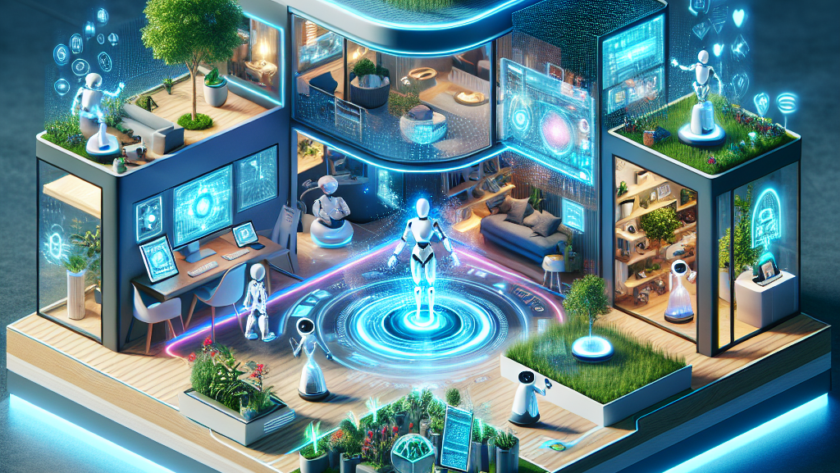The concept of a smart home has evolved significantly over the past decade. With rapid advancements in technology, we are now on the brink of a new era where artificial intelligence (AI) and robotics play crucial roles in transforming our living spaces into intelligent, autonomous environments. This article explores how AI and robotics are shaping the future of smart homes.
Enhancing Home Automation
One of the primary benefits of integrating AI and robotics into smart homes is enhanced automation. AI-powered devices can learn from our routines and preferences, ensuring that the home environment is always optimized for comfort and efficiency. For instance, AI-enabled thermostats can adjust the temperature based on the time of day, weather conditions, and occupant habits.
Smart Assistants
Virtual assistants like Amazon Alexa, Google Assistant, and Apple Siri have become household staples. These AI-driven assistants can control various smart devices, set reminders, play music, and provide information on demand. The integration of robotics adds another layer of convenience, enabling physical tasks to be automated as well.
Improving Home Security
AI and robotics are also revolutionizing home security systems. Smart cameras and sensors can detect unusual activities and alert homeowners in real-time. Moreover, AI algorithms can distinguish between regular movement and potential threats, reducing the likelihood of false alarms.
Robotic Surveillance
Innovative robotic solutions, such as autonomous drones and mobile robots, can patrol the premises, providing an extra layer of security. These devices can capture live video feeds, detect intrusions, and even interact with potential intruders through built-in speakers.
Enhancing Energy Efficiency
Energy efficiency is a growing concern for modern homeowners. AI and robotics contribute significantly to reducing energy consumption by optimizing the use of appliances and resources. For example, AI-driven energy management systems can monitor and control lighting, heating, and cooling systems, ensuring they operate only when necessary.
Smart Appliances
From smart refrigerators that manage grocery lists to robotic vacuum cleaners that keep the floors spotless, smart appliances are designed to make daily chores easier while conserving energy. These appliances often include AI capabilities to learn usage patterns and improve efficiency over time.
The Future of Connected Living
The future of smart homes lies in the seamless integration of AI and robotics, creating an ecosystem where devices communicate and collaborate autonomously. This vision includes features such as:
- Interoperability: Different smart devices working together seamlessly.
- Predictive Maintenance: AI systems anticipating and resolving maintenance issues before they occur.
- Personalization: Homes that adapt to the unique needs and preferences of their occupants.
- Environmental Sustainability: Smart homes that contribute to a greener, more sustainable future.
As AI and robotics continue to advance, the possibilities for smart homes are limitless. The fusion of these technologies promises a future where our homes are not only more convenient and efficient but also safer and more attuned to our individual needs.

